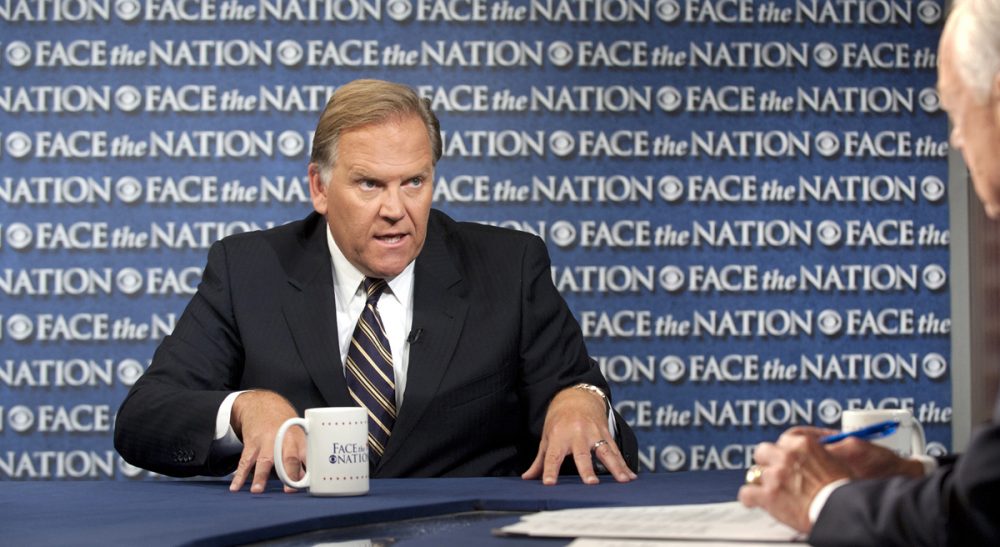Advertisement
The Words 'If' And 'Probably' Have No Place In Journalism

This is why the mainstream media is in free fall: we keep conferring credibility on public officials, even when they are peddling rank speculation.
This week it was Michigan Representative Mike Rogers, Republican chairman of the House Intelligence Committee, who got our attention, declaring on “Meet The Press” that Edward J. Snowden was probably a Russian spy. He offered no evidence beyond his personal suspicion. “I believe there’s a reason he ended up in the hands, the loving arms, of an F.S.B. agent in Moscow,” he said, referring to the Russian Federal Security Service. “I believe there’s questions to be answered there. I don’t think it was a gee-whiz luck event that he ended up in Moscow under the handling of the F.S.B.”

Even though I might expect more specifics from a member of the Intelligence Committee, I can appreciate that Rogers trusts his gut. I, myself, have some suspicions about Canada’s role in the frigid temperatures we are experiencing in New England this winter, for instance, but I’d be reluctant to share them without, you know, facts.
There is a difference between asking questions and accusing the fugitive contractor who leaked classified National Security Agency documents to reporters of being an agent of a foreign government. Instead of challenging Rogers to substantiate his charge, NBC’s David Gregory accepted his reckless conjecture with this lame rejoinder: “That's a significant development if it's true.” Ah, yes, “if.”
absent any evidence, why give Congressman Rogers a megaphone to accuse an American citizen of being a Russian spy?
This was not live television. It was a taped interview with plenty of opportunity for Gregory to note that separate investigations by the N.S.A. and the F.B.I. have found no evidence that anyone assisted Snowden, who has said that he leaked the secret documents to spark an open debate about the depth and breadth of U.S. intelligence gathering in the name of national security. Snowden told The New Yorker that Rogers’ charge that he was a Russian spy was “false” and that he had “clearly and unambiguously acted alone, with no assistance from anyone, much less a government.”
Journalists need not take Snowden at his word. If he acted out of conscience, it is fair to ask why he did not stay to face the consequences of his civil disobedience? Why fly first to China and then seek asylum in repressive Russia?
But, absent any evidence, why give Congressman Rogers a megaphone to accuse an American citizen of being a Russian spy?
Gregory, of course, is the same Sunday morning talkfest host who suggested that a reporter who published Snowden’s revelations might be a criminal himself, asking Glenn Greenwald of The Guardian last June, “To the extent that you have aided and abetted Snowden, even in his current movements, why shouldn’t you, Mr. Greenwald, be charged with a crime?” [see video clip below]
There is no evidence Greenwald “aided and abetted” Snowden other than by reporting on the leaked documents, as did major media outlets around the world, including The New York Times and The Washington Post. Gregory justified a question based on unsupported assumptions by noting that “that question has been asked by lawmakers, as well.”
Well, journalism has higher standards than that. Politicians are free to traffic in speculation but it is the job of journalists to verify blind assertions. So, when President Obama tells The New Yorker that “the benefit of the debate he [Snowden] generated was not worth the damage done,” reporters ought to ask for specifics about that damage. Would we even be discussing the limits of intelligence gathering if Snowden had not released those documents? Would the president have chosen to undertake the review of N.S.A. policies he announced last week without those disclosures?
This is why the mainstream media is in free fall: we keep conferring credibility on public officials, even when they are peddling rank speculation.
Snowden broke the law when he leaked classified documents. Whether that makes him a traitor or a whistleblower depends on our perspectives, perspectives that have a way of changing over time. Daniel Ellsberg is lionized now for having leaked the Pentagon Papers that traced decades of U.S. involvement and duplicity in Vietnam. But he was castigated as a traitor in 1971 by a president who claimed that he had irreparably harmed this nation’s security. He also was accused of violating the Espionage Act; his trial ended with all charges dropped.
We don’t yet know how Snowden’s case will end. It would help, as it unfolds, if the journalists covering it were a little less willing to let men with big titles and few facts dictate the storyline.
Related:

